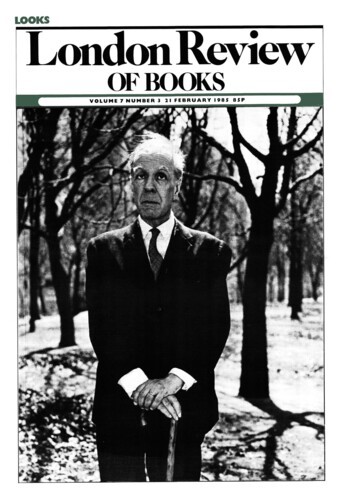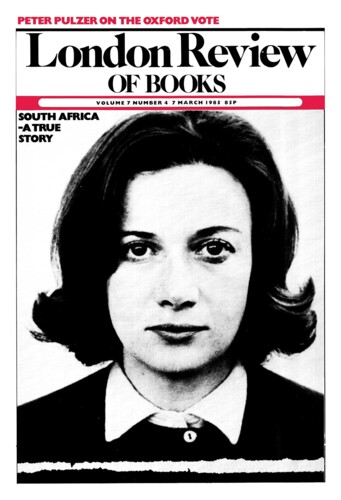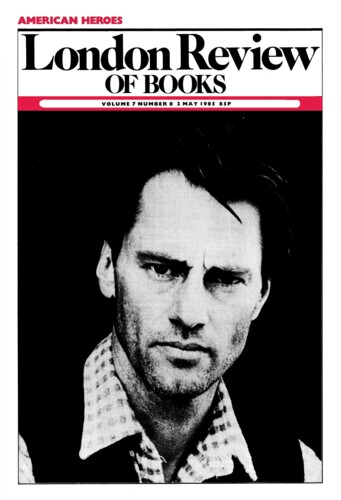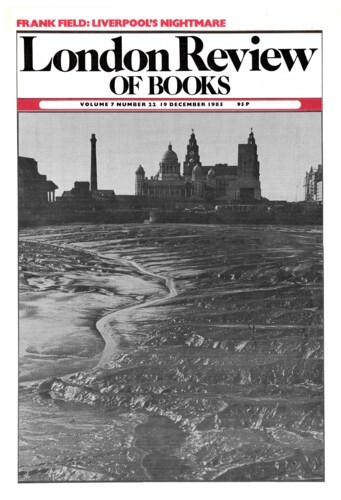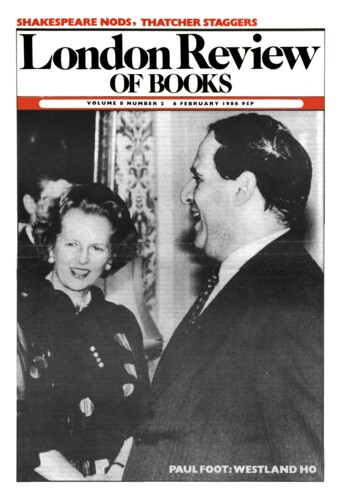Show People
Hugh Barnes, 21 February 1985
Show people pretend to be other people most of the time, they act out fictional lives. It’s nice work and reasonably well-paid. Also, if Beryl Reid and Candice Bergen are to be believed, they get to meet a regular mixture of super-rotters and superstars in far-flung corners of the world. But it must be devilishly frustrating. There are chat-shows, of course, and autobiographies (often complementary) to set the record straight, but these are poor substitutes. Is real life that important anyway? Both these books sport impressive supporting casts, which run into the glittering hundreds. Sir Richard Attenborough is the common factor. Bergen was his co-star in a film called The Sand Pebbles, shot on location in the Far East. Out of hours, while the other actors, Steve McQueen amongst them, were busy getting drunk and chasing women, Dickie (bless him) was ‘acquiring art and informing himself on the island’s politics, making underground contacts with the clandestine opposition on Taiwan’. Beryl Reid worked with him in less exotic surroundings, at the BBC. He probably spent his evenings at home with the telly. For the rest, their stories shed light on separate worlds. For instance, Charlton Heston dressed as Santa Claus was a feature of the Christmas parties Bergen went to as a child. Beryl’s heroes are a homely breed. She christened her cat Ronnie after Corbett.
